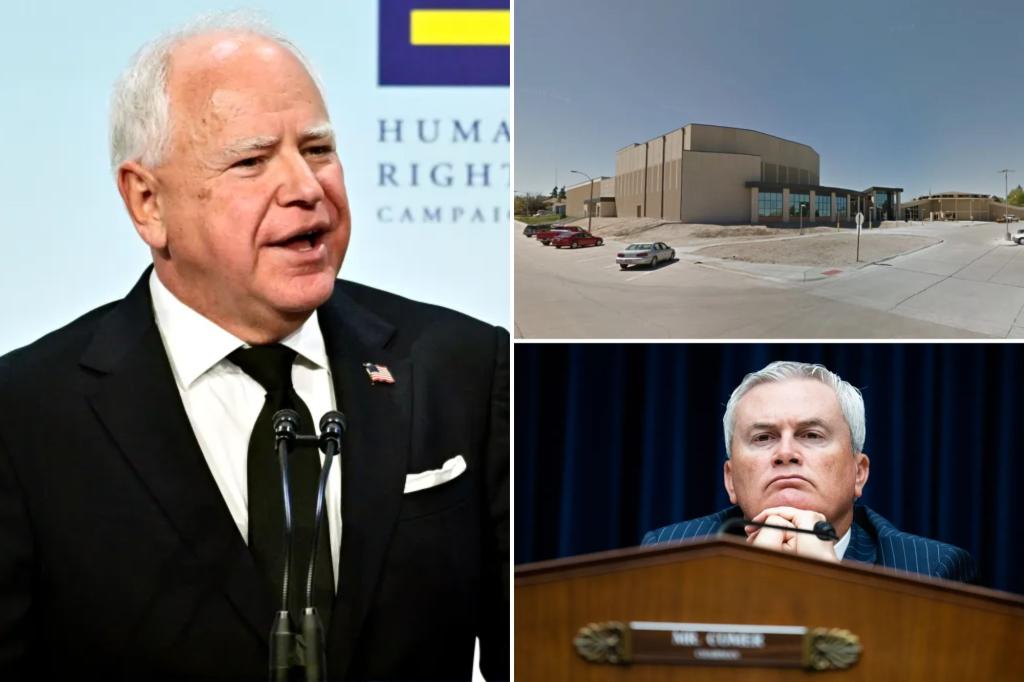Democratic vice presidential nominee Tim Walz’s China tourism company, Educational Travel Adventures, Inc., was dissolved by the state of Nebraska in 1998 due to his failure to pay $26 in business operating taxes. The company, co-founded by Walz and his wife Gwen, catered to student groups seeking to travel to communist China. Despite the dissolution of the company, Walz continued organizing student tours to China in 1998 and 2001. In 2002, he founded another entity with the same name in Minnesota, which he promoted during his 2006 run for Congress. However, reports indicate that he stopped leading the student trips to China in 2003.
In 2008, Walz reinstated Educational Travel Adventures in Nebraska after paying $235 in back taxes and interest. However, he quickly moved to dissolve the company once it was in good standing. House Oversight Committee Chairman James Comer raised concerns about Walz’s travel company last month, questioning the Chinese entities and officials Walz had engaged with and any potential subsidies from the Chinese Communist Party for the trips. Comer also expressed concerns about CCP influence operations targeting US political figures. Vice President Kamala Harris’ running mate also has ties to China through his past as a visiting fellow and lecturer on international relations at Macau Polytechnic University until at least 2007.
Rep. Jim Banks has called for the Pentagon to investigate Walz’s association with China and determine if he complied with foreign travel reporting requirements during his trips to China while serving as a senior-ranking member of the Minnesota National Guard. Additionally, Walz married his wife on the fifth anniversary of the end of the Tiananmen protests and spent his honeymoon in China. Despite these connections to China, the Harris campaign did not respond to requests for comment on the matter. These revelations have raised concerns about Walz’s potential relationships with Chinese entities and the implications for US national security.
The handling of Walz’s China tourism company raises questions about financial responsibility and transparency, particularly for someone seeking high political office. The fact that the company was dissolved multiple times and that concerns have been raised about potential ties to the Chinese Communist Party could pose a risk to national security. If Walz reinstated the company to conduct student trips to China, it could expose young students to potential foreign influence and undermine US interests. The lack of response from the Harris campaign raises further questions about the transparency of their ticket and their potential involvement with foreign entities.
It is essential for elected officials and political candidates to be transparent about their business dealings, particularly when it involves partnerships with foreign entities. The recent scrutiny over Walz’s connection to China highlights the importance of maintaining strong ethics and accountability in public service. While it is not uncommon for public figures to have ties with foreign entities, it is crucial that these relationships are disclosed and properly vetted to ensure that they do not compromise national security or US interests. The allegations against Walz underscore the need for thorough investigations into potential conflicts of interest and foreign influence in American politics.
The potential implications of Walz’s ties to China extend beyond his personal relationships to broader concerns about US-China relations. As China continues to assert itself as a global superpower, it is essential for US policymakers to be vigilant about potential foreign influence and take steps to protect American interests. The questions raised by the Oversight Committee and other lawmakers highlight the need for increased scrutiny of political figures’ ties to foreign entities and the potential risks to national security. Moving forward, it will be critical for elected officials and political candidates to address concerns about their connections to foreign entities and ensure that their actions align with US interests and values.















